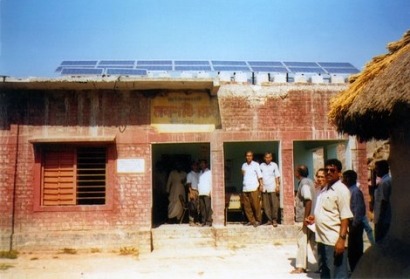
The summit is organised by The Energy and Resources Institute (TERI) and is scheduled to take place between September 30th and October 1st 2014 in Washington DC, during the visit of Indian Prime Minister Narendra Modi to the US and in the wake of the UN Secretary General's Climate Summit.
A pre-Summit roundtable discussion saw participants exploring avenues for strengthened energy cooperation between India and the US, particularly with regard to renewables and sustainability. The focus of the dialogue was to accelerate the growth and development of sustainable energy partnerships.
“The US and India are playing important roles globally in terms of energy security and climate change” said Mr Daniel Poneman, US Deputy Secretary of Energy. “This is an opportunity, as well as our responsibility, to preserve our precious planet. I believe US-India bilateral relations are poised to create huge opportunities in this sector. The time has come to move from analysis and take effective action in this regard.”
Dr R K Pachauri, Director General, TERI, added that energy security is critical for both countries and that the recent geopolitical developments in the Middle East and elsewhere can lead to drastic increases in conventional energy prices.
“I am confident that we are on the cusp of change in the use of our renewable energy resources” Mr Pachauri said. “We should be investing more on renewable energy sources in the coming years. India and the US must work together, both in energy security as well as on policy fronts, so that we can bring in some positive changes.”
The US-India Energy Partnership Summit is hosted annually by TERI North America and Yale University. The Fifth Summit will broadly look at 'Accelerating Resilient Growth and Development' while also discussing climate change and new collaborations in clean technologies and renewable energy, green buildings and sustainable cities and decentralized energy access.
The Energy and Resources Institute (TERI) is an independent, not-for-profit research organization committed to energy, environment, and sustainable development. It provides environment-friendly solutions to rural energy problems, helping to tackle global climate change issues across many continents and enhancing forest conservation efforts among local communities. It also advances solutions to urban transportation and air pollution problems and promotes energy efficiency in Indian industries.
For additional information:

